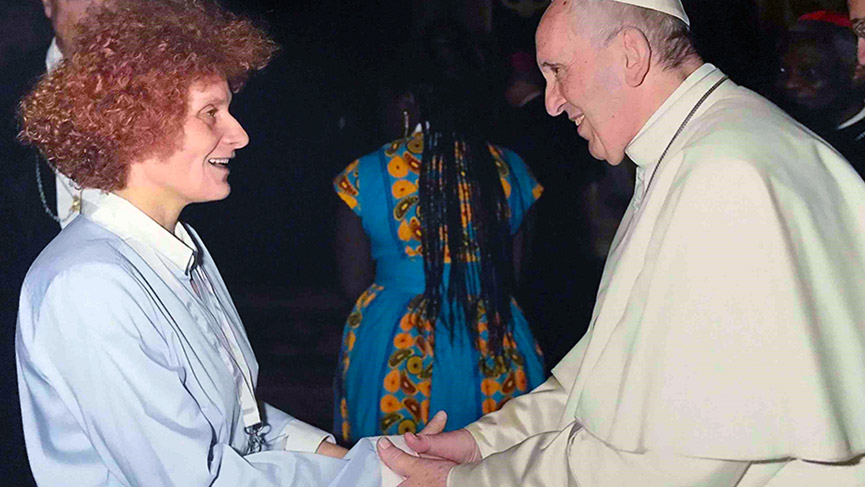In Rome, the Archdiocese shares its experience of a welcoming tradition

International
As part of the World Conference on Xenophobia, Racism and Populist Nationalism in the Context of Global Migration, held in Rome, September 18-20, 2018, the Archdiocese of Montreal was invited to participate by sharing its experience.
In the context of the 70th anniversary of the Universal Declaration of Human Rights and the 25th anniversary of the Declaration and Action Plan of Vienna of 1993, the object of this conference was to explore how churches can play a leading role through their collaboration with the state and civic leaders as well as interreligious partners, and fight in a proactive way against xenophobia, racism and populist nationalism in the age of worldwide migration, promoting compassionate and constructive responses founded on the Christian faith and traditions that respect the dignity and the rights of Man, as well as lend support to international organizations.
Alessandra Santopadre, associate director of the Office of Cultural Communities and Rituals as well as director of the program for sponsoring refugees and asylum seekers in the Diocese of Montreal, was asked to share the Church of Montreal’s experiences of welcoming newcomers. During a conference given before various worldwide organizations, Mrs. Santopadre stated that “hospitality is the responsibility of all believers to welcome strangers, in an act of love inspired by faith. This is why the diocese of Montreal choses to be a place where we live and learn to respect diversity, and where we rejoice in the possibility of encountering others in a spirit of mutual enrichment.”
This international conference was an attempt to deepen the understanding of xenophobia, racism and the rise of populist nationalism in the age of worldwide migration; finding ways to increase collaboration and joint initiatives between churches, with the optimal use of medias, so as to transform this growing reality of dehumanizing intolerance and hate based on fear into one that favors and promotes a culture of respect, solidary, social cohesion and the protection of the dignity and the rights of Man; promoting strategies that are systematically founded on faith and the most effective practices for fighting xenophobia, racism and populist nationalism, founded on Christian values of justice and compassion as well as relationships based on trust and open dialogue; stating a clear message with recommendations that aim to support leaders, local churches, groups, oecumenical organizations and communities that work toward strengthening cohesion and the coexistence of communities, so as to fight against anti-migrant rhetoric and violence and toward the promotion of initiatives of peaceful cooperation between countries, churches, communities and individuals that can contribute toward changing the discourse about migrants and new immigrant communities.
“It is essential to drawn near to new forms of poverty and vulnerability in which we are called to recognize the suffering of Christ… Migrants present a particular challenge for me, because I am pastor of a Church without borders, a Church which considers itself mother to all. For this reason, I exhort all countries to a generous openness that, rather than fearing the loss of local identity, will be able to create new forms of cultural syntheses. How beautiful are the cities which overcome paralysing mistrust, integrate those who are different, and make this very integration a new factor of development!”
(Pope Francis, Evangelii Gaudium, n.210 )

Comment
Comment
Add new comment